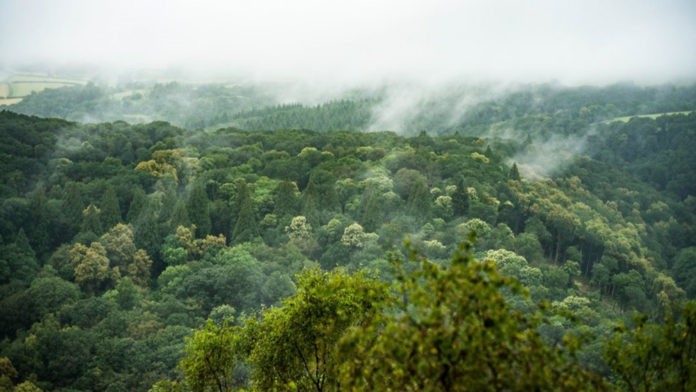A lost world wooded habitat – home to wildlife gems such as the rare barbastelle bat and hazel dormouse – is now protected thanks to public support.
The Woodland Trust launched an appeal in autumn 2019 to raise the £1 million needed to take on part of Ausewell in Dartmoor, Devon – and donations came flooding in fast. It will now join the National Trust, who owns the other part of the site, in managing this important wildlife refuge.
Woodland Trust site manager Dave Rickwood said:
“It’s very exciting that, thanks to the public’s help, we can complete the purchase of Ausewell Wood and start working with the National Trust to restore this valuable wildlife habitat.
“It means we can protect this 342 acre lost world with its rugged woodland, vast heath and damp temperate forest.”
“Through our restoration work we will create crucial havens for endangered wildlife species, such as the shy hazel dormouse which nests in the trees and the rare barbastelle bat that roosts in forgotten medieval shafts. Nationally important lichen communities can continue to thrive in the pure atmosphere.”
The two charities have plans to carefully managing the non-native conifer areas to allow nature to recover. This will allow plants and trees from former woodland species to recover and re-colonise the ancient woodland areas, thus supporting a range of climate threatened wildlife.
Wildlife monitoring has already taken place to help shape our management and gain an understanding of how climate change is having an effect. The plans involve working with the local community, providing opportunities for people to explore and learn more about Ausewell Wood, its habitats and the wildlife found there.
It gives the opportunity to work with other organisations and landowners linking areas across Dartmoor to deliver a better, bigger, more widespread and more connected landscape for wildlife.
Alex Raeder, the National Trust’s south west conservation manager, said:
“The National Trust is delighted to be working again with the Woodland Trust to secure the future of our finest wooded habitats. This is more important than ever in the fight against climate change and biodiversity loss. Ausewell Wood is an astonishingly beautiful place and the mix of heathland and wooded habitats provide homes for redstarts and places for rare lichens to thrive.”
“We will be creating some access into the woods, which until now has not formally existed, so that people can discover Ausewell’s natural beauty for themselves. Routes will be low-key to help look after the wildlife that everyone values so highly.”
Alex added: “Ausewell exemplifies the importance of the Dart Valley for nature and through our joint care of this place with the Woodland Trust, we intend to make it even better in future.”
Ausewell has been dubbed ‘the lost world’ due to its dense vegetation mirroring that of a rainforest. The wildlife found at the site has endured centuries of various human interventions including mining, charcoal making and in more recent history, the planting of non-native trees in ancient woodland.
It is a valuable wildlife site, a Site of Special Scientific Interest, a place where key species such as cuckoos, lesser spotted woodpeckers, pied flycatchers and the elusive hazel dormouse have taken refuge.
The National Trust secured part of the purchase of the site through gifts in wills whilst the Woodland Trust raised its share through a public appeal. With the purchase sealed, the organisations are now concentrating their efforts on raising the extra £1.5 million to protect and restore the site.
Ausewell will open to the public later this year once the purchase has completed and initial access work has taken place. As a refuge for nature, Ausewell will be a place for people to enjoy in an unobtrusive way.
The two Trusts are not strangers to working together. As well as jointly owning and managing the nearby Fingle Woods, they are also working with a wide range of partners to provide resilient wildlife habitats in the wider Dartmoor landscape.








































